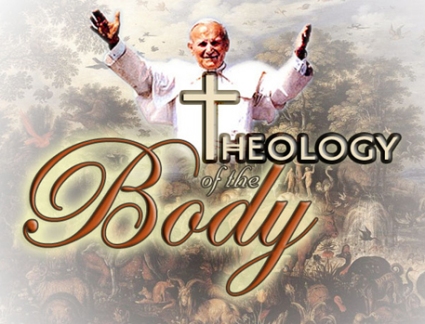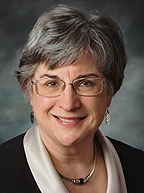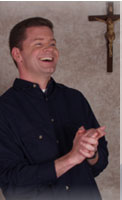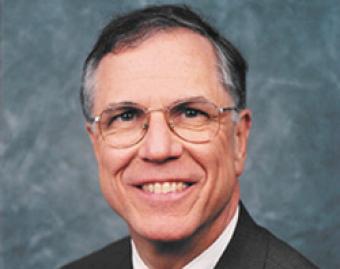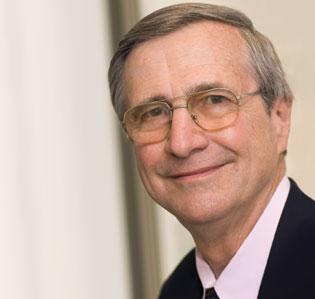Posts Tagged ‘Natural’
Institute’s New Director on Speaking Truth in Understandable Ways
By Kathleen Naab
PHILADELPHIA, Pennsylvania, JAN. 9, 2012 (Zenit.org).- A Philadelphia-based educational institute focused on promoting Blessed John Paul II’s theology of the body has named a new executive director.
 The 7-year-old Theology of the Body Institute picked Damon Owens, a successful businessman turned marriage promoter. Included on his extensive resume is his work as the Archdiocese of Newark’s Natural Family Planning and Marriage Preparation Coordinator, and leadership with the Life Education And Resource Network (L.E.A.R.N.), the largest African-American, pro-life ministry in the country.
The 7-year-old Theology of the Body Institute picked Damon Owens, a successful businessman turned marriage promoter. Included on his extensive resume is his work as the Archdiocese of Newark’s Natural Family Planning and Marriage Preparation Coordinator, and leadership with the Life Education And Resource Network (L.E.A.R.N.), the largest African-American, pro-life ministry in the country.
Owens is himself a certified Natural Family Planning instructor who has counseled more than 20,000 couples over the last 16 years. He often appears on Catholic television and radio, sharing various aspects of the theology of the body, as well as commentating on topics related to marriage and family. He and his wife, Melanie, have been married for 18 years and have eight children.
ZENIT spoke with Owens about the Theology of the Body Institute and its work, and the difficulties facing those who promote Blessed John Paul’s message.
ZENIT: The Theology of the Body Institute exists to promote John Paul II’s theology at the secular level, too. Is that truly possible and if so how?
Owens: Our mission is to train and educate men and women to understand, live and promote Blessed John Paul II’s theology of the body. While most of the individuals who come in contact with our programs are Catholic, our on-site and Certification courses regularly draw non-Catholics and non-Christians. It is not only possible, but it is critical that we evangelize the broader culture. Our preparation as believers for the “springtime of the new evangelization” includes a deeper grounding not only in the “what’s” of our faith, but the “why’s” behind them.
As believers, we accept even what we cannot fully understand about God’s revelation, because we love and trust him. Still, our faith is reasonable. There is a tremendous amount of truth that can be encountered before an assent of faith. There is a tremendous amount of beautiful and compelling meaning that can be successfully proposed even to a darkened intellect and hardened heart.
Rooted in objective truth, the theology of the body provides a personalistic approach that is well-suited for evangelizing in the modern culture. Our sexuality — masculinity and femininity — carries deep meaning for the identity and vocation of every human person. It is also the place of deep wounds for so many. The Theology of the Body Institute desires to help persons in every state of life gain an understanding of what it means to be created in God’s image and to live out their call to love as he loves. Only from this foundation can an authentic culture of life and love take root and flourish.
ZENIT: Linked to the previous question, statistics about Catholic married couple’s use of artificial contraception seem to indicate there is plenty need for Catholics as well to hear and accept John Paul’s theology. What are your thoughts in this regard? Must we first clean up our own camp before engaging the secular world?
Owens: Beginning with your last question, evangelization is, of course, intimately connected with catechesis (the head) and conversion (the heart). It is always a messy, personal, and inefficient work! Our witness is hurt by our own sin, ignorance, and lack of faith. On one hand, our ongoing conversion strengthens our witness. On the other hand, we have to be careful about setting too high a standard of personal perfection before witnessing to perfection. Without question, contraception is a tap-root of nearly every modern evil. Moreover, the prevalence of Christians contracepting is both a cause and an effect of the rise of other grave evils such as pornography, divorce, violence against women, abortion, fornication and homosexuality. These were the predicted consequences of their widespread use, and the subsequent result of their widespread acceptance.
The question remains, however: How do we reach people’s heads and hearts to reject the evil of contraception? It cannot just be emphatic instruction on the mortal sin of contraception (the head). It must include a compelling invitation to a true conversion of heart. Their hearts must “see” how contraception is a withholding of themselves that deforms the marital act and stifles the very love they long for. Theology of the body is a means to illumine the immutable meaning of things (natural law) in the heart of the person.
Fortunately, the great majority truly desire love. Whether they are in a pew or at the mall on Sunday, they deserve to hear the truth in a way that they can understand it. It is in our heart — or inner life — that we as unique and unrepeatable persons encounter the One True God. While we certainly wish there were a more authentic faith witness from Catholic married couples today, we at the Theology of the Body Institute have been just as awed by conversions in the Faith as by those to the Faith. We remain passionately committed to the simple mission of educating and training men and women to understand, live, and promote the Theology of the Body.
ZENIT: Tell us about the institute and plans you have for it as the new executive director.
Owens: The Theology of the Body Institute was formed in 2004 with the simple mission to educate and train men and women to understand, live and promote the theology of the body. Each of the founders experienced a profound conversion through Blessed John Paul II’s great work and continue to be animated by the desire to make it accessible to the world — Christian and secular — in an understandable, engaging and attractive manner. Ours is an integrated educational approach that presents the rich intellectual theology in an environment that encourages a real encounter with Our Lord. As we often say, it is an immersion of the head and the heart!
Our certification program with its retreat-format courses is the heart of our mission. These courses include Theology of the Body I, II, & III, Love & Responsibility, Catholic Sexual Ethics, Writings of John Paul II on Gender, Marriage, & Family, The Thought of Karol Wojtyla, and Theology of the Body & the Interior Life. Our on-site events at schools, parishes, seminaries and conferences around the world complement these courses and have grown in number and size every year.
We have a world-class faculty that includes Dr. Janet Smith, Dr. Michael Waldstein, Christopher West, Bill Donaghy, Dr. John Haas, and beginning for 2012-2013, Dr. Peter Kreeft and Fr. Timothy Gallagher, OMV. To date, more than 1,600 individuals have come to Pennsylvania for our week-long certification courses, and thousands have attended our on-site events around the world. We also held the first Theology of the Body Congress in 2010 bringing together leaders from around the world to explore the diverse applications of TOB. So, I begin with an organization that I consider successful in its mission.
My plans are to build on this success with an enhanced Clergy Enrichment Program for priests and seminarians that enriches both their priestly identity and vocation as fathers. We also plan to expand both our faculty and our Certification course offerings to reach even more lay and clerical leaders. The fact remains that only a small percentage of people in the world are familiar with this profound teaching. I see my role as expanding this success, as opposed to any real change in direction.
ZENIT: You are taking over leadership of the institute when the push for same-sex marriage and adoption is unprecedented. What do you hope to contribute to this battle?
Owens: We are an educational apostolate, so our contribution to social issues such as these is teaching the meaning of things. What is marriage? What does our sexuality mean? What is love, truth, freedom, or joy? What does it mean to be a human person? How do I choose, act, and live in accord with these truths and meanings? These cultural issues ultimately represent a critical loss of the meaning and dignity of human personhood. God bless those who are taking up these issues in the public square. I did that for years and deeply appreciate the need for, and difficulty of, these urgent defenses. It is abundantly clear, however, that these issues incubated long-term in a culture steeped in a disintegrated concept of human personhood. Sexual complementarity devolved into sexual difference, now sexual difference has been denied all together. Equality is argued as sameness. So, the argument continues, since men and women are the same, there is no difference between a husband and a wife or a mother and a father.
This is an identity crisis that requires long-term reformation and restoration. If we don’t know who — and whose — we are, we won’t know how to behave in a way that is in accord with our dignity and brings us true joy. Sexuality, sexual morality, love, marriage, fatherhood, motherhood, family, and life itself are integrated realities that flow from who God has revealed himself to be — a Trinitarian Communio: Three Divine Persons in such union that they are truly One.
The Gospel is “good news” precisely because it reveals to us the deepest truths of our identity created in the “image and likeness” of God, and subsequently our vocation to love. The language, approach, and appeal of the theology of the body gives us a means to understand and embrace the Gospel by rereading the language of the body. Simply put, as the body reveals the person, masculinity and femininity reveal the original, enduring, and eternal meaning of personhood as a call to communion. Love is self-gift. By rereading the language of the body in truth, we see love as not simply something we do, but as a universal human vocation that flows from who we are.
With regard to the specific question of redefining marriage, students of theology of the body are equipped to articulate not mere disagreement, but why it is simply not possible.
Regensburg Revisited (Part 2): Interview With Father James Schall
By Carrie Gress
ROME, OCT. 10, 2007 (Zenit.org).- Benedict XVI’s Regensburg lecture, given Sept. 12, 2006, was not only directed at the question of Islam, but also the weaknesses of modern Western philosophy, says Jesuit Father James Schall.
The professor of political philosophy at Georgetown University is the author of “The Regensburg Lecture,” published by St. Augustine’s Press.
In Part 2 of this interview with ZENIT, Father Schall comments on what he says is one of the most important discourses of modern time.
Part 1 .
Q: The Holy Father included in his lecture a discussion of the roots of voluntarism, a theological idea that attempts to put no limits on God, defying even reason. What role does this factor play in Islam as well as in non-Muslim thought?
Father Schall: This question, of course, was already in Greek and medieval philosophy. It exists as a perennial issue for the human mind to resolve. Voluntarism did not originate with Islam, except perhaps in the sense that nowhere else has it been carried out with such logical consistency and backed by such force. “Voluntarism” here means not the spontaneous effort to do something to help others of which the Pope spoke in “Deus Caritas Est,” but the philosophic and theological idea that the will is superior to the intellect and is not subject to reason.
The Pope is quite careful to note that the same problem exists in the West via Duns Scotus, the great medieval philosopher and theologian. It goes from him to William of Ockham, to Niccolò Machiavelli and to Thomas Hobbes, and onward into modern political philosophy. I have just been reading with a class Heinrich Rommen’s most insightful book “The Natural Law,” which spells out in much detail why legal voluntarism stands at the basis of modern positivism and historicism, subjects that Leo Strauss and Eric Voegelin were concerned with.
From this point of view, the Regensburg lecture was directed at the heart of Europe and America, to those “justifications” that are in fact used by its laws and customs to justify the killing of the innocent. The Socratic principle that “it is never right to do wrong” still remains the bedrock of a philosophy not based on pure will.
Pure will can justify anything because it has evaporated any nature or order from man and the universe. Voluntarism allows no grounding for absolute principles of human dignity. If it is asked, if I might surmise a guess, why the Pope chose to begin his lecture with the conversation of the Greek Byzantine Emperor in the 1300’s with a Persian gentleman, it was because it enabled him graphically to state the most pressing issue of our time, not merely “is it reasonable to extend religion by violence,” but is it reasonable to use this violence on any innocent human being.
This is where the Islamic problem, in fact, is substantially the same as the Western problem. Both systems have to resort to a voluntaristic theory of state and being to explain why they are not immoral for using violence against those who are innocent and protected by the divine and natural law itself.
We miss the point if we think voluntarism is not a theoretic system that seeks to praise God in the highest possible way. Voluntarism means that there is no nature or order behind appearances. Everything can be otherwise. Everything that happens occurs because God or Allah positively chose it, but who could have chosen the exact opposite.
Some philosophers, not just Muslim, think that God cannot be limited in any way, even by the principle of contradiction. He can make right wrong, or even make hatred of God his will. It sounds strange to hear this position at first. But once we grant its first principle, that will is higher than intellect, and governs it, everything follows.
This theory is why so-called Muslim terrorists claim and believe that they are in fact following Allah’s will. They might even be acting on a good, if erroneous, conscience. Allah wants the whole world to worship him in the order laid down in the Koran.
The world cannot be settled until this conversion to Islam happens, even if it takes centuries to accomplish. This submission to Allah is conceived to be a noble act of piety. There is in voluntarist principles nothing contradictory if Allah orders the extension of his kingdom by violence, since there is no objective order that would prevent the opposite of what is ordered from being ordered the next day.
Again, I must say, that behind wars are theological and philosophical problems that must be spelled out and seen for what they are. This spelling out is what the Regensburg lecture is about.
Q: Explain why the Pope cites the recovery of a particular kind of reason? He speaks of a “re-Hellenization,” or a return to Greek philosophy, as the solution to the current crisis of civilization.
Father Schall: Actually, the central part of the lecture was rather on the “de-Hellenization” of western culture and what it meant.
The Pope indicated three states: 1) the Reformation position that there was too much philosophy in Catholicism, so that what was needed was a return to the pure Jesus, without the philosophy.
2) The second was the result of the denial of the divinity of Christ, so that, with Adolf von Harnak, Christ was just a man to be studied by science in the universities.
3) The third was in effect multiculturalism, that there was no possible unity on the basis of principle or reason. Everyone was right within his own system.
The tradition from even the Old Testament, as the Pope sketched out, was rather that revelation itself pointed to Greek philosophy. In the case both of Genesis and the Prologue of John, the very term “Logos” was the form in which God chose to speak to us, in the word.
The very definition of God — “I Am” — was clearly something that was comprehensible in a philosophy itself based on reason. The Pope is quite careful to note that Paul’s turning to Macedonia and not to some other culture had to do with a providential decision about what it means to comprehend revelation, particularly the Incarnation and the Trinity, the two basic doctrines that are denied in all other religions and philosophies.
It is because of the unique contribution of Europe that this relation was hammered out, particularly by St. Augustine and St. Thomas Aquinas and their heritage. To receive revelation of the word, of the inner life of the Godhead, we must have a preparation, a philosophy that allows us to comprehend what it being revealed to us. Not all philosophies do this, which is why it makes a difference what philosophy we understand to be true.
The Pope pointed out that for Kant, reason and revelation are not any longer directly related as being addressed to each other. Faith and reason are two separate things, with no possibility of mutual comprehension, however minimal. Kant is the origin of much subsequent philosophy that has been perplexed, as Gilson showed in his famous “Unity of Philosophic Experience,” by how to put things back together again.
The small error in the beginning leads to a large error in the end, as Aristotle taught us. This Kantian, and before it Cartesian, background too is the origin of the two different concepts of “reason” that the Pope made the key question of modern intelligence and of intelligence itself. The logic of the Reformation’s position on philosophy and its relation to theology led to an attempt to have a pure human Jesus without any real basis in reason to explain why it is credible to believe in him.
The Pope wants to do two things. First he wants to defend science within its own competency, and second he wants science to abandon the “self-limitation” of itself that cannot see the reality of nonmathematical things because being is not limited only to things that can be measured.
This broader openness to human truths that can be known by intuitive reason, love, friendship, suffering or hope is why the Eastern and other religions think the West because of its scientific narrowness has lost its soul, as it appears from their vices, that they have.
Scientific reason, which is not coextensive with reason in its fullness, cannot speak to what really counts in human existence. This distinction between two kinds of reason gives an even greater insight into what this Pope is about. What he is really doing is seeking for grounds, which have to be reason, by which we can approach all religions and cultures, including Europe itself, busily losing not only its soul but its very bodies, as population decline shows.
